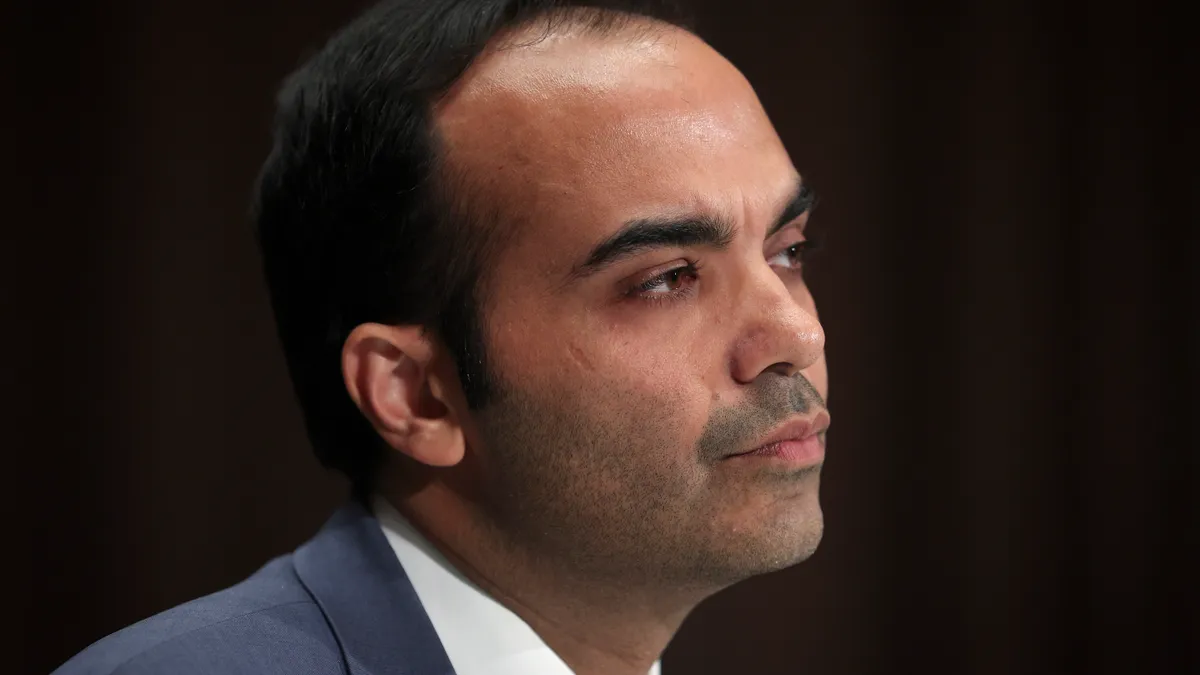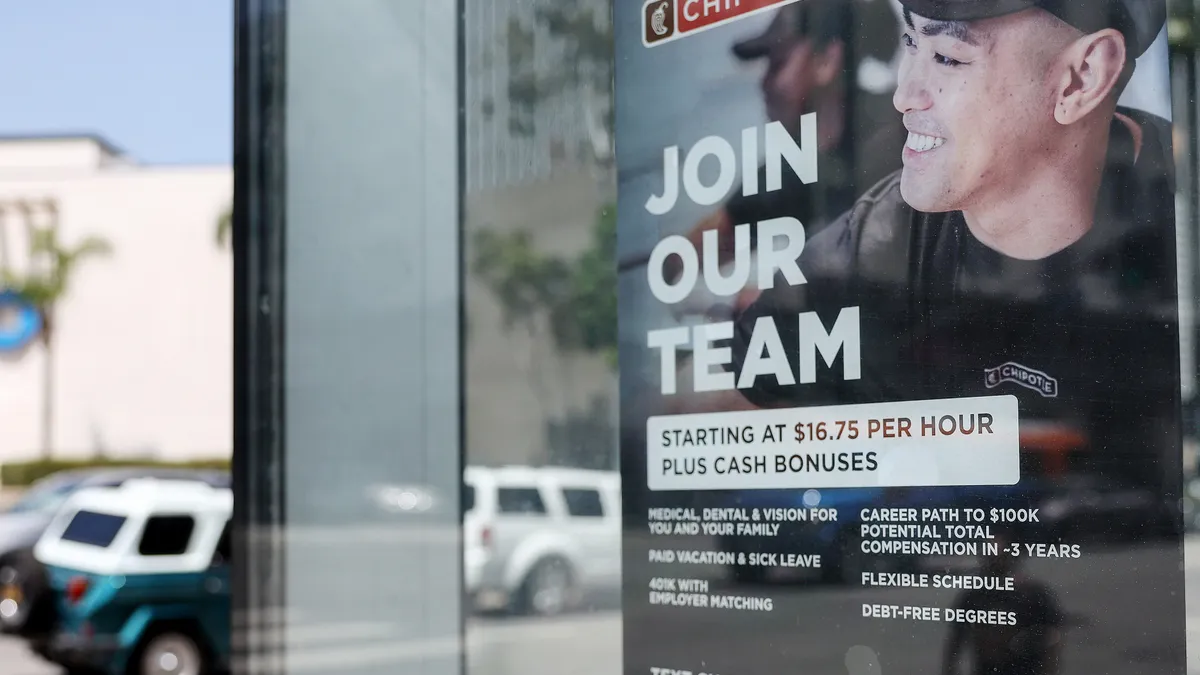The Consumer Financial Protection Bureau was hit with a barrage of public comments last week regarding its earned wage access rule proposal ahead of a Friday deadline for that feedback.
Much of the commentary fell along the same battle lines that have been drawn for months, since before the federal agency issued its interpretive rule proposal in July labeling earned wage access payments as loans. Many companies in the industry have long argued that their services don’t constitute lending and therefore lending laws shouldn’t apply.
The federal agency took action after studying an array of on-demand pay tools that have emerged in the market, and said it aimed to help companies offering the services understand how the bureau would apply existing laws to the nascent industry.
“Paycheck advance products are often marketed to and designed for employers, rather than employees,” CFPB Director Rohit Chopra said when the rule proposal was issued. “The CFPB’s actions will help workers know what they are getting with these products and prevent race-to-the-bottom business practices.”
For their part, most earned wage access providers and their trade associations, including the American Fintech Council, have opposed the proposed rule. Some companies, including DailyPay, urged the CFPB in their comments to withdraw the rule. Others, including Wagestream, also criticized the agency for its rulemaking approach, saying it wasn’t meeting “fairness standards” for transparency and public comment.
The Fintech council also noted that the CFPB’s position now, under President Biden, diverged inappropriately from prior guidance issued during the Trump administration.
“Earned wage access is not a loan, and it shouldn’t be regulated as such,” the council’s CEO, Phil Goldfeder, said in an interview last month. “We’re obviously deeply disappointed with not just the CFPB’s position, but their dramatic 180 from the guidance they released in 2020.”
Over the past decade, companies that offer services that let workers tap their earned wages before regularly scheduled paydays have proliferated, with dozens of competitors now in the market catering to what they say are millions of users.
Those EWA providers have a variety of ways in which they sell their services and earn revenue. Some partner with employers and charge them for offering the service to employees. Others exact fees from workers who tap the service, either through employers or by offering the service directly to consumers. Some also draw fees when workers use prepaid or debit cards that they are issued in conjunction with an EWA service.
Several EWA providers, including FlexWage, argued the agency should revise the proposal to distinguish between companies that provide services through employers, especially those that don’t assess certain fees, and those that offer services directly to consumers.
Generally, the companies argued that the rule should be better tailored to the EWA industry, explaining that lending laws aren’t a good fit.
Some groups, speaking on behalf of employers, including the National Automobile Dealers Association, also chimed in with input for the CFPB. That association said it shared concerns about the rule proposal raised by the U.S. Chamber of Commerce.
“While NADA appreciates the CFPB’s intent to protect employees, the Proposed Interpretive Rule lacks clarity and disregards the benefits of certain earned wage access services,” according to an Aug. 31 comment letter from Kaye Lynch-Sparks, NADA’s director of regulatory affairs.
Nonetheless, consumer protection organizations, including the National Consumer Law Center, The Center for Responsible Lending, and the Consumer Federation of America, applauded the CFPB’s effort to put guardrails on the industry and better protect consumers.
“We believe this rule will provide much needed clarity around the regulation of these credit products and give consumers the transparency in costs that they are entitled to but have been deprived of to date,” the groups contended in a joint Aug. 30 letter.
The three organizations also said the agency should be on alert for potentially “unfair and deceptive practices” by some companies in the market, and provided examples in their letter.
One consumer, Tammy Hawn of Columbia, South Carolina, filed a comment with the CFPB saying she was pleased the federal agency was stepping in after she saw relatives using EWA services to their detriment. She explained that once their paycheck was actually deposited in their accounts, so many fees had been taken out of their checks that they ended up needing to borrow money again. “They got caught up in this endless cycle of borrowing,” Hawn said.
“I believe that you should force these banks/financial institutions to disclose the cost of these programs upfront to customers,” Hawn wrote in her July 19 comment letter. “They prey on those that do not have very much to begin with and once they start borrowing money many find themselves forced to continue to borrow more. This type of lending needs to be stopped.”
Her state of South Carolina is one of a handful of states that over the past year has enacted laws to track EWA providers by requiring them to register with the state and provide certain records on a regular basis.
The new state laws, which were backed by industry trade groups, don’t treat EWA services like loans. So, contrary to the CFPB’s rule, the new state laws don’t force EWA providers to adhere to federal lending laws, like the Truth in Lending Act.
One South Carolina legislator who backed that state’s law earlier this year wrote to the CFPB to ask it to defer to the states in regulating earned wage access, expressing a sentiment contrary to Hawn’s.
“The recent (CFPB) interpretive rule classifying EWA as a loan threatens to harm South Carolina workers who rely on these services to manage unexpected expenses and avoid more expensive products,” William ‘Bill’ Sandifer, who is chairman of the South Carolina House Labor, Commerce and Industry Committee, said in his Aug. 28 letter.
Other state legislators have strong views about the issue. This year, bills cropped up in Washington, New York, Maryland and Hawaii, among other states, according to the American Fintech Council.
Despite the CFPB’s position, the American Fintech Council will keep backing state legislation that doesn’t treat earned wage access services like loans, Goldfeder said.
























